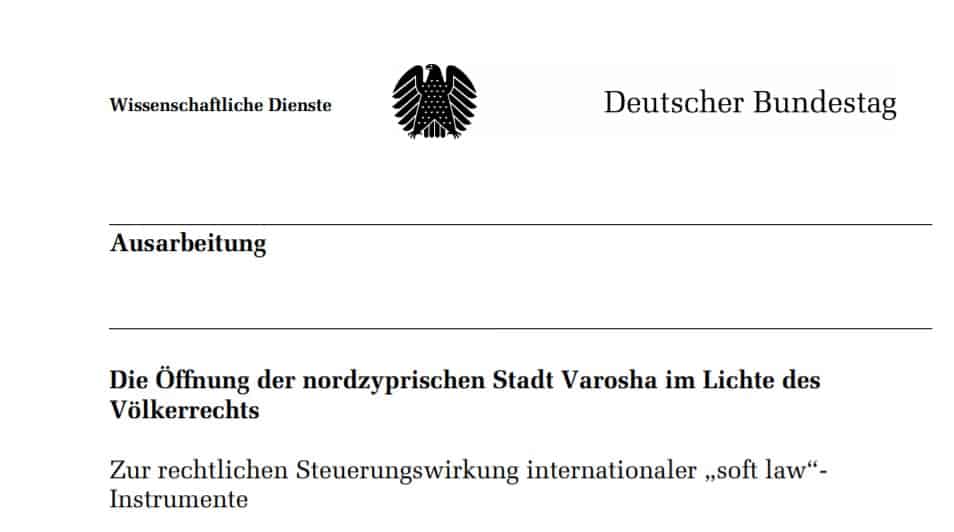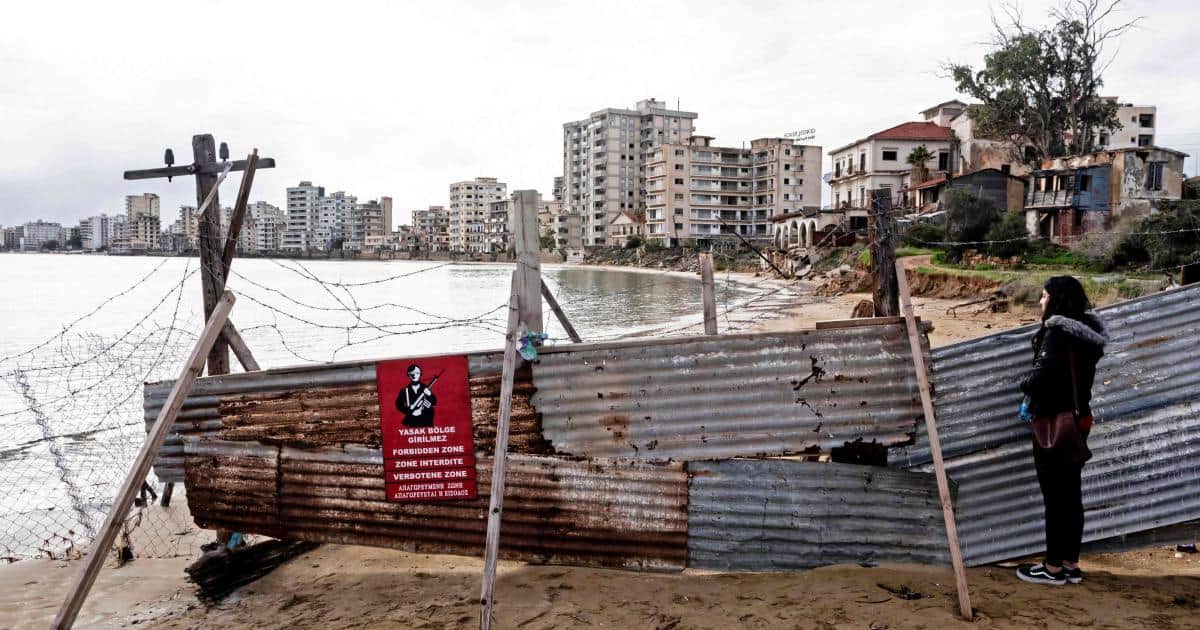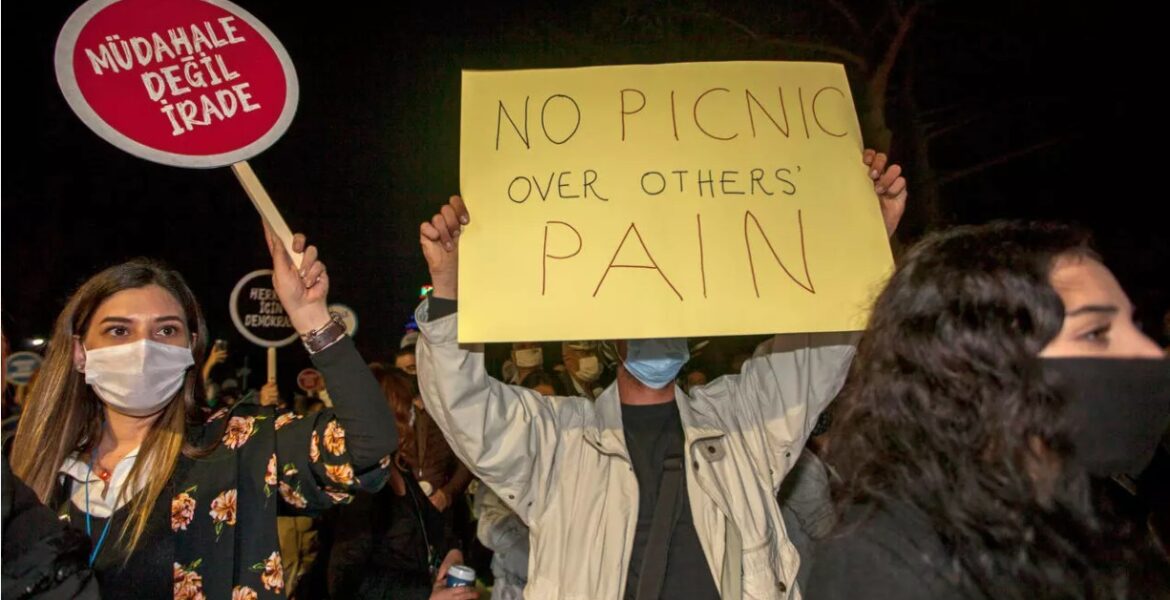The 1974 Turkish invasion of the Republic of Cyprus resulted in the occupation of 36% of the small East Mediterranean island.
Additionally 200,000 Greek Cypriots were expelled from Turkish-occupied northern Cyprus.
In the Turkish-occupied part of Cyprus, one can find Varosha in the southern quarter of Famagusta city.
Once a popular tourist destination, since 1974 it has been an abandoned restricted area which civilians cannot enter.
This has only changed until recently.
In a joint press conference on October 6, Turkish President Recep Tayyip Erdoğan and the newly elected leader of the illegal "Republic of Northern Cyprus", Ersin Tatar, announced that they will re-open Varosha.

This move prompted international outrage, not only in Greece and the Republic of Cyprus.
For example, the High Representative of the European Union Josep Borell said that it is a "serious violation of the ceasefire agreement“.
Recently the Scientific Service of the German Bundestag (Parliament) analyzed the opening of Varosha in light of international law and published its results.
The report says:
"The legal link of 'soft law' with binding international law leads to the – seemingly contradictory – result that the Varosha resolutions of the Security Council which are formally speaking (and by themselves) not legally binding cannot be legally ignored."

Furthermore it mentions:
"The point of view of the Turkish Republic of Northern Cyprus is that the opening of Varosha is in accordance with international law because the UN resolutions are not binding, has no effect."
But it also clarifies:
"On the other hand one can not say – at least without further elaboration – that Turkey violated the resolutions of the Security Council by opening Varosha Beach and as a result breached international law."
"Rather one has to put the disregard of the Varosha Resolutions into a larger context," it added.
The report ends with the following:
"The disregard of non-binding resolutions only starts to become legally significant in connection with the London Treaty of Guarantee of 1960 which can still claim validity. The Varosha resolutions concretize what is not acceptable or rather not in accordance with the treaty."

What can be said in conclusion is that these unilateral steps from the Turkish side drive Cyprus further away from a one-state solution and that they threaten the territorial integrity of the Republic of Cyprus which is secured by the Treaty of 1960.
So the condemnations are certainly not baseless. Unfortunately, Turkish politicians even started talking about a two-state solution.
The future will tell where Cyprus is heading to.
The views expressed by the author do not necessarily reflect those of Greek City Times.
Note from the editor: Greek City Times was also used as a reference on Page 13 of the Bundestag's report.



